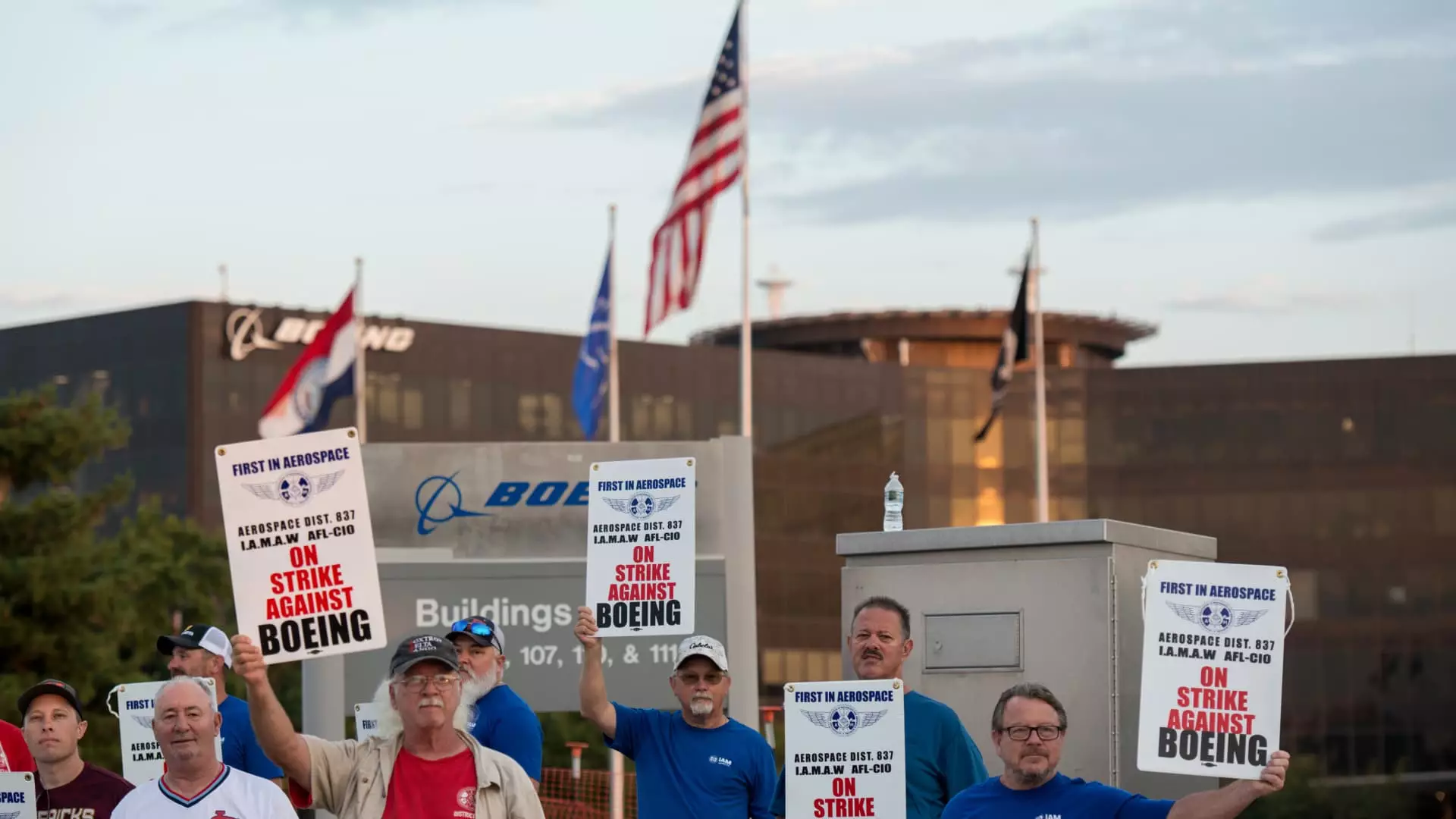In an era where corporate profits often eclipse employee welfare, the recent strike by Boeing defense workers signals a critical shift in labor dynamics. For nearly thirty years, these skilled professionals have operated largely behind the scenes, ensuring the production and maintenance of vital defense equipment such as F-15 fighter jets and missile systems. Their decision to walk off the job—not out of mere dissatisfaction but as a demand for respect—sends a powerful message: workers are no longer willing to accept undervaluation of their skills and dedication. This pivotal moment echoes a broader societal call for equitable treatment in industries where national security intersects with labor rights.
What makes this strike particularly noteworthy is the union’s bold stance against a generous offer from Boeing. The company had proposed a 20% wage hike, a $5,000 bonus, and enhancements to retirement benefits—concessions that would seem to favor workers at face value. Yet, the union’s refusal underscores a deeper issue: the stagnation of pay equity relative to workers’ expertise and the importance they hold. Their fight isn’t just about dollars; it’s about recognition, respect, and ensuring that compensation mirrors the critical role they play.
The Power Dynamics Between Corporate Strategy and Worker Solidarity
Despite Boeing’s confident declarations of managing through a potential strike, the company’s posture reveals a stark reality: behind the scenes, leadership is grappling with the implications of labor unrest in a sector that directly impacts national security. The defense unit accounts for a significant portion of Boeing’s revenues—about 30% of $42 billion in the first half of this year—making any disruption potentially costly. Yet, the company’s CEO, Kelly Ortberg, has downplayed the strike’s immediate damaging effects, projecting resilience rather than alarm. Such a stance, while seemingly pragmatic, risks underestimating the long-term implications of neglecting worker grievances.
Historically, Boeing’s struggles with labor have been recurrent, punctuated by last year’s nationwide machinists’ strikes that halted commercial aircraft production. These disruptions reveal a pattern: when workers feel undervalued, they respond with collective action. The current strike reminds us that worker solidarity remains a formidable force, especially in high-stakes sectors where human expertise is irreplaceable. It also underscores that corporations cannot afford to overlook the importance of fostering genuine, respectful relationships with their employees—not merely in financial terms but in valuing their contributions profoundly.
The Future of Corporate Responsibility and Workforce Empowerment
This moment represents more than just a labor dispute; it is a clarion call for a fundamental recalibration of employer-employee relationships within critical industries. Companies like Boeing must recognize that fair compensation and employee respect are not just ethical imperatives but strategic advantages. When workers feel heard and valued, productivity and innovation thrive—a far more sustainable approach than coercive negotiations or superficial offers.
Moreover, this strike illustrates the necessity for corporate leaders to confront their own assumptions about resilience. Managing through crises isn’t simply about cost-cutting or ignoring worker discontent; it requires a commitment to building trust and fostering collaboration. In the long run, the companies that prioritize their workforce’s dignity are those most likely to succeed in an increasingly competitive and socially conscious marketplace.
This confrontation is not just a labor conflict; it is a defining test of corporate integrity in the 21st century. Ultimately, the path forward hinges on recognizing that the strength of a nation’s defense relies not only on technological mastery but also on the unwavering respect and fair treatment of the workers who make it possible.

